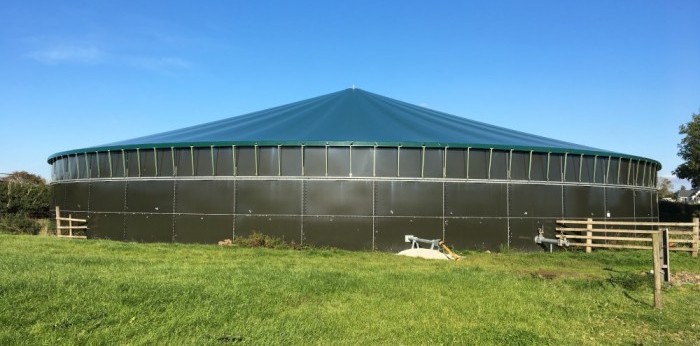Pig producers have just three days left to apply for Round 2 of the Slurry Infrastructure Grant . The application window closes on Wednesday, January 17.
A further £74 million has been made available to help farmers invest in improved slurry infrastructure to tackle water pollution, improve air quality and make better use of organic nutrients under the second round of the scheme.
In a new blog on the Defra website, the Department says: “We’re supporting many more projects than we did last year so, if you need slurry storage, now is the time to apply.”
- You can view the post HERE
Farmers can apply for grants of £25,000 to £250,000 to replace, expand, build extra and cover slurry stores, and fund equipment such as separators, reception pits and agitators.
As previously reported, based on feedback from farmers, a number of changes have made to the scheme that make it more accessible to pig farmers, including an increase from to eight months’ storage covered by the grants, while grants will also be available towards a slurry separator, and retrofitting covers onto existing stores.
The second round has more than double the funding on offer than the first round of the scheme to help meet increased demand. It forms part of a total £200million being invested in infrastructure and equipment to tackle agricultural pollution from slurry over the agricultural transition period.
Guidance for Round 2 of the Slurry Infrastructure grant sets out:
- who can apply
- what the grant can pay for
- the information you’ll need to provide when you apply.
Farmers can apply for the second round of the Slurry Infrastructure Grant HERE
Supported
Farming Minister Mark Spencer said: “We’re indebted to farmers who work day in day out to ensure we have great British food on our tables while protecting and shaping our countryside.
“It’s vital they are supported to make the environmental improvements I know so many want to make. Our Slurry Infrastructure Grant is helping farmers to invest in infrastructure which is often costly but can deliver big benefits for our waterways and air quality, while also cutting their input costs.”
Yorkshire pig producer Joe Dewhirst, a recipient of the first round of the Slurry Infrastructure Grant, said: “The Slurry Infrastructure Grant is helping me replace my old earth banked slurry lagoon with a new precast circular slurry store, which will help me manage my slurry better and reduce emissions from the farm.”
This grant comes ahead of the launch of two further rounds of the Farming Equipment and Technology Fund in early 2024 and 2025, offering £21 million for smaller items of equipment to help farmers manage slurry, from nutrient testing kits to low emission spreaders.
The new funding builds on work already being taken forward by farmers in the government’s Countryside Stewardship scheme such as separating dirty water and effluent from rainwater through roofing over manure stores to prevent contamination.
Farmers can also apply for complementary options under the Sustainable Farming Incentive, including support to produce a Nutrient Management Plan, establish multi-species winter cover and buffer strips.
The grant forms a key component of the government’s Plan for Water which sets out more investment, stronger regulation and tougher enforcement to tackle every source of water pollution.
The grant will enable more farmers to go beyond existing storage requirements, supporting better compliance with regulation and more effective use of organic nutrients. Farmers are obliged to have a minimum of four months slurry storage in the rules for storing silage, slurry and agricultural fuel oil, and five (cattle) or six (pigs) months in Nitrate Vulnerable Zones. The Farming Rules for Water also require farmers to plan nutrient applications to meet soil and crop need.
If oversubscribed, funding will be prioritised in areas where coordinated action is most urgently needed to reduce water and air pollution from farming. This will ensure available public money is targeted to areas where it can make the biggest improvement to environmental outcomes. The priority areas have been significantly widened compared to round one to meet more demand.
Nutrient pollution
The SIG is part of the government’s commitment to tackle nutrient pollution at source and grants will continue to be prioritised in areas near protected sites with ammonia pressures in nutrient neutrality catchments.
Defra stressed that livestock manure is a vital tool to increase organic matter in soil, supporting crop growth and helping farmers be more productive while reducing the need for artificial fertilisers.
Yet, spreading slurry when there is no crop or soil requirement, often due to insufficient storage capacity, can cause significant pollution in rivers and waterways, as well as wasting a valuable resource and increasing costs for farmers.
Open slurry stores and broadcast spreading also release large amounts of ammonia which harms vulnerable species and damages human health, it said.




